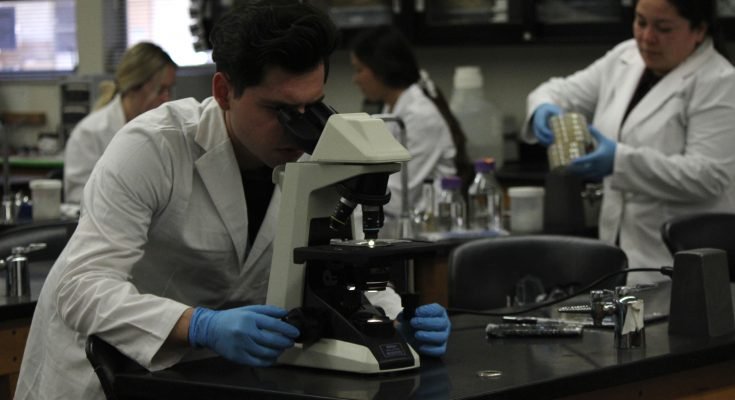Three programs have been proposed to expand the sciences at Vanguard. The new majors–actuarial science, data analytics, and engineering–are being reviewed by the faculty senate, which is the second of five stages for approval.
The original proposals were presented last April, with no set timeline for when they will be put into full affect. The actuarial science and data analytics will be math-focused programs that will be in collaboration with the Business Department.
Actuarial science will focus on risk management, which is important for insurance companies. Data analytics will be an interdisciplinary study that is used to gather data, infographics, and other key performance indicators.
The third proposal is engineering physics, which is meant to accommodate the growing number of students pursuing a career in engineering.
Tara Sirvent, Interim Associate Dean of STEM, Director of Academic Research, and Professor of Biochemistry, believes this program is necessary to bring more STEM students to Vanguard. Engineering, according to Sirvent, is a huge portion of the STEM field.
“They have environmental, mechanical, chemical, electrical, and computer engineering, and it is becoming a field of its own. We don’t have anything at Vanguard and that segment of perspective students don’t consider Vanguard because of that,” Sirvent said.
The engineering physics program is an interdisciplinary course and can incorporate all types of goals students may have in becoming an engineer.
Dr. Adrienne Williams, Assistant Professor of Chemistry, was hired last year because of her extensive background in engineering. Previously she had been working in the trade for eight years, six years at the Department of Defense Wright-Patterson Air Force Base Research Laboratory and two years at SST International.
“What I think Vanguard can offer is that we have strong chemistry and physics courses along with faculty that can also be apart of the engineering program. If we just had ‘engineering’ on our website we could attract so many more students to an intricate playing field,” Williams said.
One class they began offering last semester is Introduction to Environmental Sciences that any student can take as an entry-level science course.
Previously, non-science majors were confined to taking Empirical World as credit for their required science course, but the department has proposed to remove the class if the others are approved such as Introduction to Data Sciences and Introduction to Computer Sciences.
“The hope is that we have enough choices for people that we don’t have to restrict them to this one class that just has a little bit of chemistry, biology, and physics. Usually, when students are curious, they want to explore the subject a bit more. The feedback has been students saying they didn’t learn anything new that they didn’t know from high school,” Sirvent said.
There is no set date for when the new classes and programs will be available to students.

 Vanguard’s Road to Change
Vanguard’s Road to Change How A Father Is Warning Californians About The Dangers of Fentanyl
How A Father Is Warning Californians About The Dangers of Fentanyl Put A Swing in Your Step at Atomic Ballroom
Put A Swing in Your Step at Atomic Ballroom Freedom House Church Costa Mesa establishes mobile campus at Vanguard
Freedom House Church Costa Mesa establishes mobile campus at Vanguard
Leave a Reply